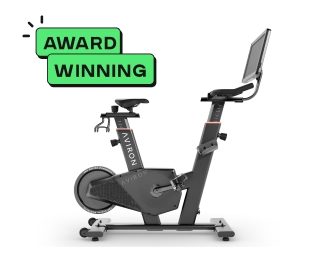You've decided to bring the best cardio workout home at last. Congrats! Investing in a rowing machine might be a great move for your health. But hold on, should you choose an air or magnetic rower?
Understanding Rowing Machines: The Fundamentals
Rowing machines are multifaceted gems in the exercise world, providing you with a full-body workout like no other. Today, we'll look at two varieties of these treasures: magnetic rowers and air rowers.
What exactly is a Magnetic Rower?
A magnetic rower is similar to the strong, silent type that we typically find appealing. It uses magnetic resistance to provide a smooth, mostly silent training experience. It's like rowing on a calm lake on a calm day. There isn't a ripple to be seen, just you and the rhythm of your strokes.
The Air Rower: what is it?
The air rower, on the other hand, is the center of attention. The harder you row, the more resistance you'll feel from the air. So it's livelier, more energizing, and sure, a tad noisier, like rowing on a rapid river.
What is the mechanism of magnetic resistance?
The interaction between magnets and a flywheel is where the magic of magnetic resistance occurs. To change the level of difficulty on a magnetic rower, you must physically move one or more of the magnets away from the flywheel. The resistance increases as the distance between the magnets and the flywheel decreases. The reason for this is that the flywheel spins more slowly when magnets are present, making it more effortful to pull the handle.
How exactly does air resistance function?
In contrast, air resistance operates on a different principle. The flywheel of the rowing machine has fan blades, which are spun when the handle is pulled. The faster you row, the faster the blades spin, resulting in increased air resistance and a more difficult draw. The quicker you attempt to fan a fire, the more resistance you encounter!
Principal Distinctions Between Magnetic and Air Rowers
You can row at any pace with a magnetic rower since the resistance remains constant. In contrast, the resistance on an air rower increases in proportion to the user's rate of rowing. Compared to a swift river, it's like kayaking on a placid pond.
Magnetic rowers often produce a smoother and quieter rowing motion than air rowers. In air rowers, the magnetic resistance technology runs without the noise produced by the fan or flywheel.
Magnetic rowers typically require an external power source to operate the resistance system, either via an electrical receptacle or batteries. Being self-powered, air rowers do not require an external power source.
Both magnetic and air rowers can monitor and record a variety of performance parameters, including time, distance, strokes per minute, and calories burned. Magnetic rowing machines, on the other hand, may offer more advanced performance tracking functions, such as monitoring the user's heart rate and connecting to fitness apps and gadgets.
Magnetic rowers are noted for their stability during rowing workouts because of their compact design and often heavier structure. This contributes to the rowing machine's reputation for stability. There is a possibility that using an air rower may deliver a solid training experience; yet, due to the fan or flywheel, there may be some little movement or vibration.
If you like a quiet workout, a magnetic rower is an excellent choice. However, if you enjoy the rhythmic whoosh of your efforts, the air rower's loudness may be music to your ears!
Magnetic rowing machines are more expensive than conventional ones because of their intricate design. However, air rowers are less expensive than other exercise equipment while still giving a great workout.
Due to their mechanical construction, air rowers may require slightly more upkeep. Maintaining clean fan blades is essential for proper operation. However, due to their less complex construction, magnetic rowers require less upkeep.
Aviron Provides Magnetic and Air Resistance
At Aviron, we attempt to replicate the real-world rowing experience while meeting your specific fitness requirements. Our machines seamlessly combine air and magnetic resistance systems to deliver a dynamic and all-encompassing workout.
The air resistance system provides incremental resistance, simulating the sensation of rowing on water. It's like gliding down a river, with each stroke propelling you deeper into your workout and matching the dynamic resistance you'd find rowing in the wild.
Our magnetic resistance method, on the other hand, produces an incredibly powerful and smooth torque. This quiet yet powerful technology allows you to choose between cardio and strength training on a single machine. It's like having an all-season, all-purpose fitness instructor at your disposal.
We have you covered whether you're looking for the quiet efficiency of a magnetic rower or the exciting challenge of an air rower. Regardless of your favorite training style, Aviron caters to the rower in you.
Pros versus Cons
Choosing between magnetic and air rowers is an exhilarating, decision-filled voyage comparable to navigating the high seas. Here, we delve deeper into the advantages and disadvantages of both types of devices to assist you in making a decision.
Pros of Magnetic Rowing Machines
Picture yourself working in the peace of a lake at night. That's how it feels to use a magnetic rowing machine for exercise. Their near-silent functioning makes them ideal for anyone who wants to work out without disturbing others. Magnetic rowers are ideal for people who live in cramped quarters or who simply don't want to make a lot of noise when exercising at home.
Consistent Resistance: Magnetic rowers are distinguished by their consistent resistance. The resistance remains constant regardless of rowing speed, allowing you to keep a consistent rhythm. This feature is ideal for beginners, those recovering from ailments, or those preferring a steady-state, cardio-focused workout.
Magnetic rowers require minimal maintenance because of their simplified construction and lack of wear-and-tear elements. They are like that dependable friend who is always there for you but does not expect much in return!
Cons of Magnetic Rowing Machines
Magnetic rowers typically have a higher price tag than other types of rowing machines because of their high-end technology and sturdy build. But this is an expense worth making for a relaxing, dependable, and low-maintenance day on the water.
Consistent resistance may be beneficial for some, but it may be boring for others who prefer a more realistic rowing experience. Magnetic rowers provide a more consistent level of resistance than would be experienced while rowing outdoors. Some people might find that lessens the experience of being out on the open sea while rowing.
Pros of Air Rowers
- Affordability: If you're on a tight budget but don't want to give up on your fitness objectives, air rowers are your best friend. They provide a comprehensive training experience at a minimal cost, making them popular among a wide range of customers.
- Air rowers have dynamic resistance, which changes depending on how fast or slow you row. The stronger the resistance, the faster you pull. This feature closely resembles the natural experience of rowing, in which resistance increases with effort. It adds a level of difficulty that many rowers find stimulating and rewarding.
- Realistic Rowing Sensation: Air rowers provide a more realistic rowing sensation due to the dynamic resistance and rhythmic "whoosh" of the air. It's like having a mini-rowing competition in your homeroom!
Cons of Air Rowing Machines
With an air rower, your exertion is audibly more noticeable. As your pace increases, the fan's "whoosh" sound becomes increasingly audible. Some users enjoy this sound as a rhythm or pace-setter, but if you prefer a quieter environment for your exercise, it could be a con.
Due to the increased number of moving elements, such as fan blades, air rowers typically require more maintenance. Regular cleaning and occasional replacement of parts may be required to maintain the machine in pristine condition. But have no fear, it's just a little TLC for your trusted workout companion!
Which is more beneficial to you?
It's up to you to choose between an air rower and a magnetic rower. Do you favour quiet, routine exercise or do you prefer a more active, difficult one? As they say, the decision is entirely yours!
Conclusion
Whether you choose the quiet and steady magnetic rower or the lively and challenging air rower, you are guaranteed an excellent, total-body exercise. So go ahead, choose your favourite, and prepare to achieve peak fitness through rowing!
Frequently Asked Questions (FAQs)
Q: Is it better to start on a magnetic or air rower?
A: Both types of rowing machines are simple enough for novices to use. The volume and nature of the resistance are matters of taste.
Q: Which rowing machine makes more noise: an air or a magnetic one?
A: Due to the air resistance mechanism, air rowers tend to be noisier.
Q: Which rowing machine model provides the most authentic simulation?
A: Due to the resistance increasing with the rowing pace, air rowers provide a more authentic rowing experience.
Q: Do air rowers need more upkeep than regular ones?
A: The maintenance needs of air rowers are generally higher than those of magnetic rowers.
Q: Do magnetic rowing machines cost more than air rowing machines?
A: Due to their intricate design, magnetic rowers are typically more costly.


